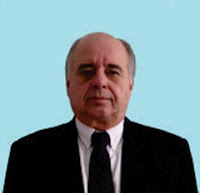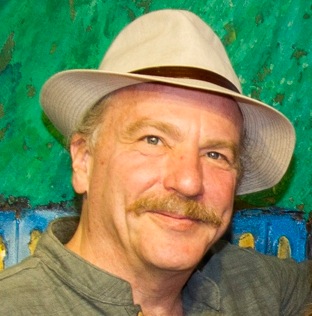Graduated
as Civil Engineer, Safety Engineer and Systems Analyst.
During more than twenty five years worked as planning
and schedule consultant in the construction of ports, nuclear industries,
cellulose fabrics, iron ore mills, and hydroelectric power plants.
During several years was a professor at the Rio de
Janeiro State University in the cathedra of Port Construction in Engineering
and Oceanography Faculties
· in the 70´s started his research in the
area of natural nutrition and natural techniques.
· in 1984, started studying Kinesiology.
· in 1991 was a co-founder of the
International Kinesiology College, and Faculty Member of it until 1997.
· is certified as Professional Specialized
Kinesiologist - P.S.K. by I-ASK
· translated to Portuguese more than twenty
books of international Kinesiology Institutes from which he is certified as
Instructor to teach their techniques to the students of his Institute that did
not speak English.
· wrote more than thirty books about
specific techniques of BALANCEAMENTO MUSCULAR®.
· translated to Spanish several of his
books.
· in the area of apprenticeship developed
specific workshops named Integração Cerebral ("Brain Integration")..
· is an international public speecher in the
area of Balanceamento Muscular®/Kinesiology presenting papers, or
lectures, about specific aspects of Kinesiology in international conferences of
the International Association of Specialized Kinesiologists and of Touch For
Health associations in several countries - ·· 1991 – San Diego/EUA; 1992 – Saint
Louis/EUA; 1993 – Las Vegas/EUA; 1994 – Vancouver/Canada; 1995 – Garda/Italy;
1996 – Tucson/EUA; 1996 – San Diego/EUA; 1997 – London/UK; 1999 – Copenhagen/
DN; 2003 – Bad-Nauheim/Germany.
· in 2010 did a lecture in the first Latin
American Conference of Terapias de Avanzada ("Advanced Therapies")
held in Buenos Aires/Argentina
· Co- founder (1988) and president of
Instituto Brasileiro do Balanceamento Muscular®.
· Pubic speecher in the areas of stress,
brain integration and apprenticeship.
· in 1997, as Faculty Member of the
International Kinesiology College, graduated the first group of Instructors of
“Touch For HealthÔ” in Argentina.
· in 1998, graduated the first group or
Instructors of BALANCEAMENTO MUSCULAR® in Argentina
· author of one of the chapters of the book
“Terapias de Avanzada – Vol. 3”, printed in Argentina in 2008
· from
1992 – 2013 – consultant in the area of management and administration using
techniques of BALANCEAMENTO MUSCULAR®.















